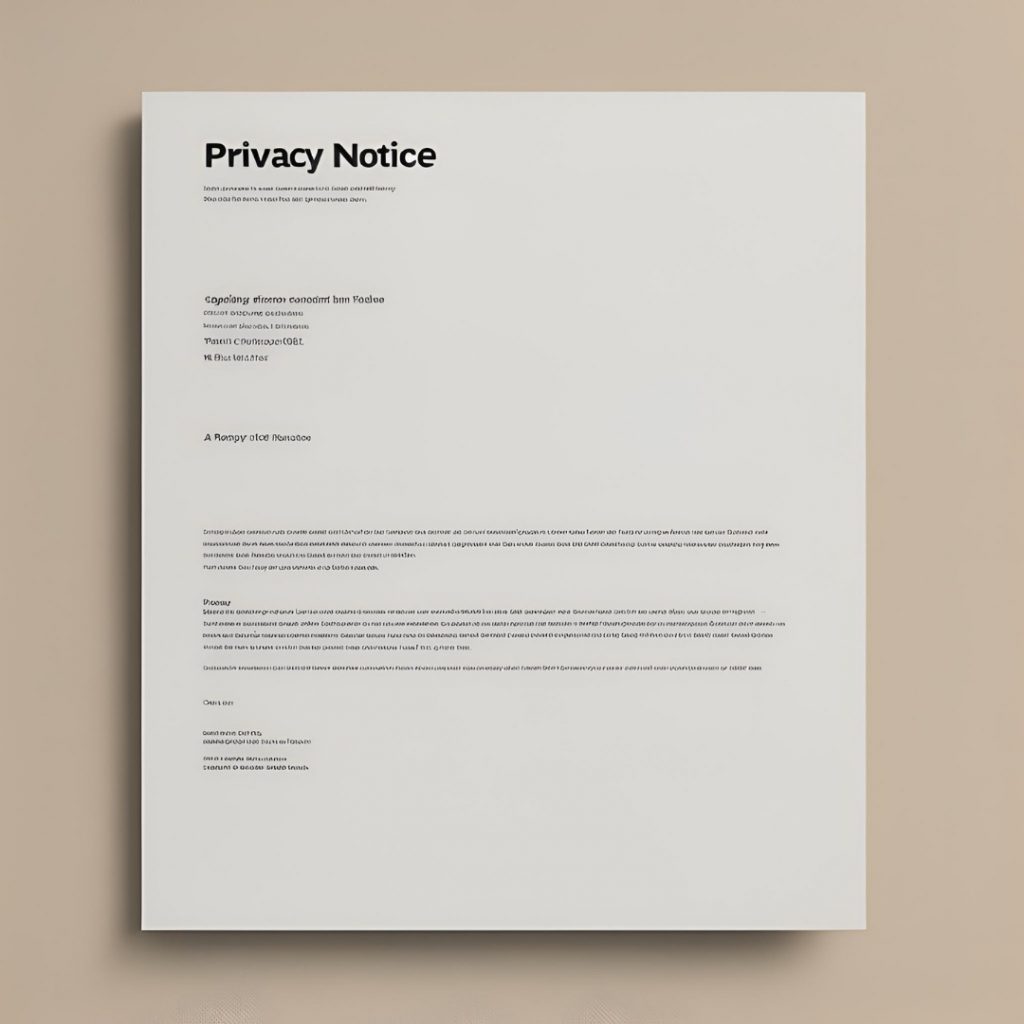What is a Privacy Notice
A privacy notice is a public document that explains how an organization collects, uses, shares, and protects personal data. It informs individuals about their rights concerning their personal information and how they can exercise these rights. Essentially, it is a transparency tool that helps individuals understand what happens to their data when they interact with a company.
A privacy notice is more than just a legal obligation; it is a vital component of your relationship with your customers. By providing clear and comprehensive information about your data practices, you can build trust and demonstrate your commitment to protecting personal information. Ensure that your privacy notice complies with relevant regulations and is accessible, understandable, and regularly updated.
Essential Information to Include in a Privacy Notice
- Identity and Contact Details: Include the identity of data controllers and contact details of the organization. Including contact information for the Data Protection Officer (DPO), if applicable.
- Types of Data Collected: Describe the categories of personal data collected. Such as name, email address, phone number, including information about any sensitive data like health information.
- Purpose of Data Collection: Specify the purposes for collecting and processing personal data. Such as providing services or conducting marketing activities.
- Legal Basis for Processing: Outline the legal grounds for processing personal data. Including consent, performance of a contract, legal obligation, or legitimate interests.
- Data Retention Period: Specify the period for storing personal data or the criteria used to determine this period.
- Data Subject Rights: Summarize the rights individuals have regarding their personal data, as per the relevant data protection law.
- Data Sharing and Disclosure: Provide information on whether personal data will be shared with third parties, the categories of recipients with whom the data may be shared (e.g., service providers, business partners), and the purposes for sharing data with these third parties.
- Data Transfers: Detail any transfer of personal data to countries outside the individual’s jurisdiction and the safeguards in place to protect the data during such transfers, such as standard contractual clauses or Privacy Shield framework.
- Security Measures: Describe the security measures implemented to protect personal data from unauthorized access, loss, or misuse.
- Cookies and Tracking Technologies: Provide information about the use of cookies and other tracking technologies, their purposes, and how individuals can manage or disable cookies.
- Changes to the Notice: State how individuals will be notified of any changes to the notice and the date of the last update to the notice.
- How to Exercise Rights: Provide instructions on how individuals can exercise their rights, such as contacting the DPO or submitting a request through a dedicated portal.
- Complaints: Include information on how individuals can lodge a complaint with a supervisory authority or data protection authority.
Why You Should Work with a Professional
Expertise in Legal Compliance: Professionals have in-depth knowledge of data protection laws and regulations. Ensuring your privacy notice complies with GDPR, CCPA, PDPL and other relevant standards.
Clear and Comprehensive Communication: They excel in translating legal jargon into clear, understandable language, ensuring your privacy practices are transparent to users.
Customized to Your Business: Professionals tailor privacy notices to your specific business operations and data handling practices.
Attention to Detail: Professionals meticulously include all necessary information. Covering aspects from data collection and usage to individual rights and contact details.
Risk Mitigation: By understanding potential risks and legal obligations, professionals help mitigate liabilities associated with data protection and privacy laws.
Timely and Efficient: They streamline the process, ensuring your privacy notice is completed promptly without compromising accuracy or compliance.
Long-Term Compliance: Professionals provide ongoing support to keep your privacy notice updated with evolving laws.
Working with a professional ensures that your organization’s data practices are transparent. As well as legally compliant, and aligned with best practices in data protection.
